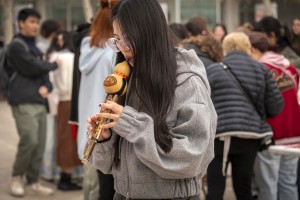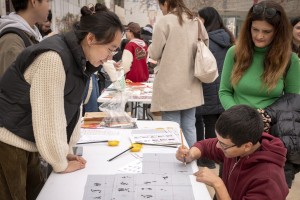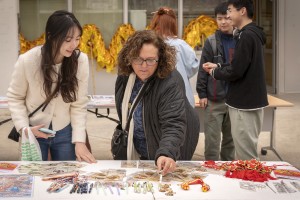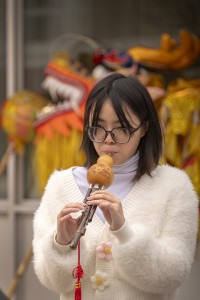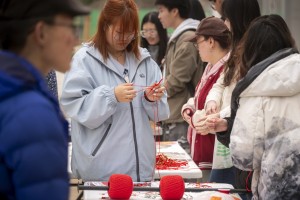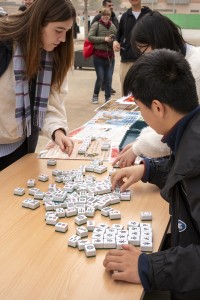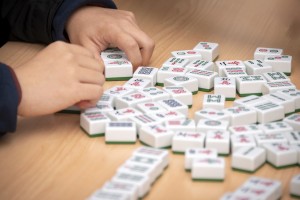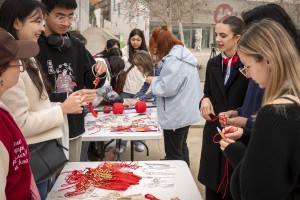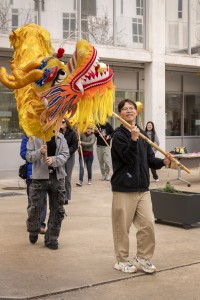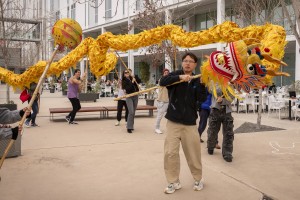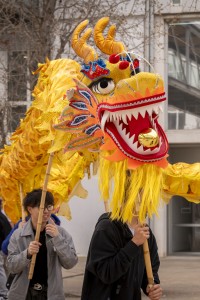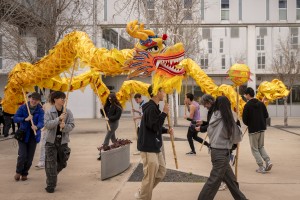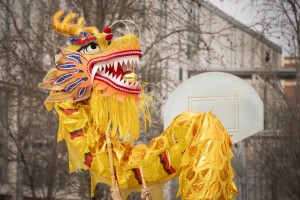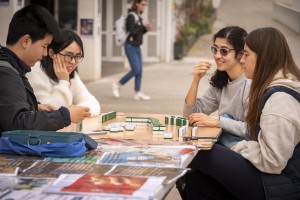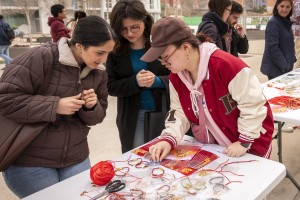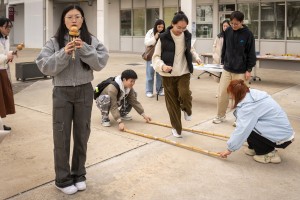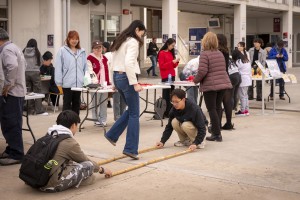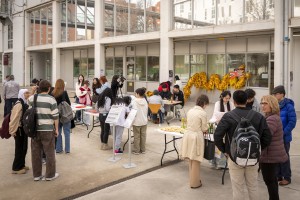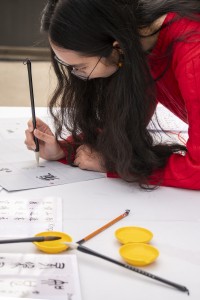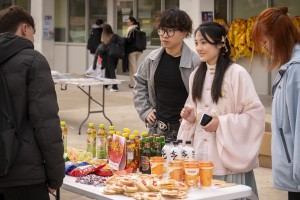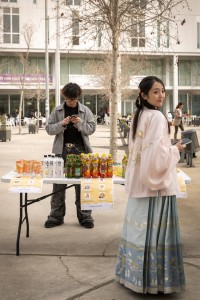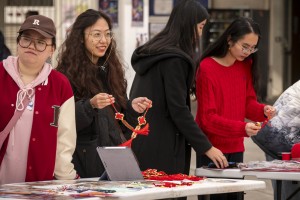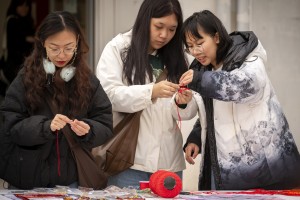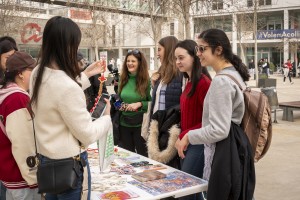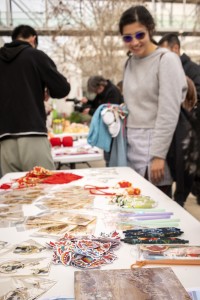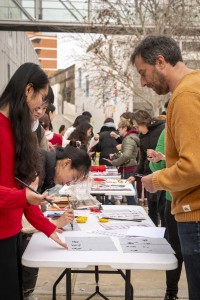15/02/2024
Over 1,200 Chinese students have studied Spanish at the URV
The University, which has taught a ground-breaking educational programme for Chinese-speaking students, celebrates the Chinese New Year with workshops and performances.
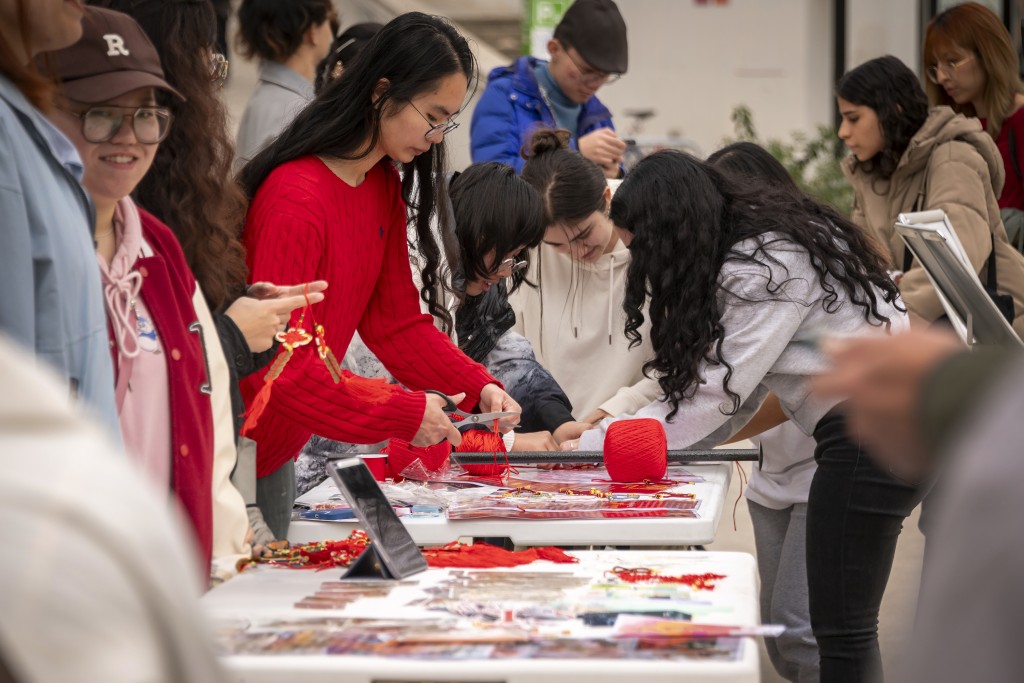
The University, which has taught a ground-breaking educational programme for Chinese-speaking students, celebrates the Chinese New Year with workshops and performances.
This morning the Plaça de la Concòrdia on Catalunya Campus was filled with workshops, food, the dragon dance and live music. The students on the “educational programme for Chinese-speaking students” at the URV’s Centre for Hispanic Studies organised the activities that mark the beginning of the new year in China, the Dragon year, and which have also become a tradition at the URV.
Next academic year will be the thirtieth anniversary of the arrival of the first group of Chinese students at the University to do a course in Spanish as a foreign language, and the twentieth anniversary of the first academic agreements with Chinese universities. In fact, the URV was one of the first in Spain to offer an educational programme exclusively for Chinese students.
Since then, 1,200 undergraduates have completed the third and/or fourth year of their bachelor’s degree at the URV with the aim of improving their level of Spanish and having more job opportunities. For this reason, the programme is divided into two pathways: language and culture, and language and business. The first semester is the same for all students and designed for them to improve their command of the Spanish language. Subsequently, and depending on their interests, they can choose optional subjects such as translation, history, literature and society, or the economic relations of China with Spanish-speaking countries and an introduction to business and entrepreneurship, among other options.
Their immersion also involves working hand in hand with undergraduates on the Hispanic Language and Literature programme and students on the Master’s Degree in Language Teaching in a variety of practical subjects. This enables them to create lasting friendships and, for some of them, the time spent at the URV has been key.
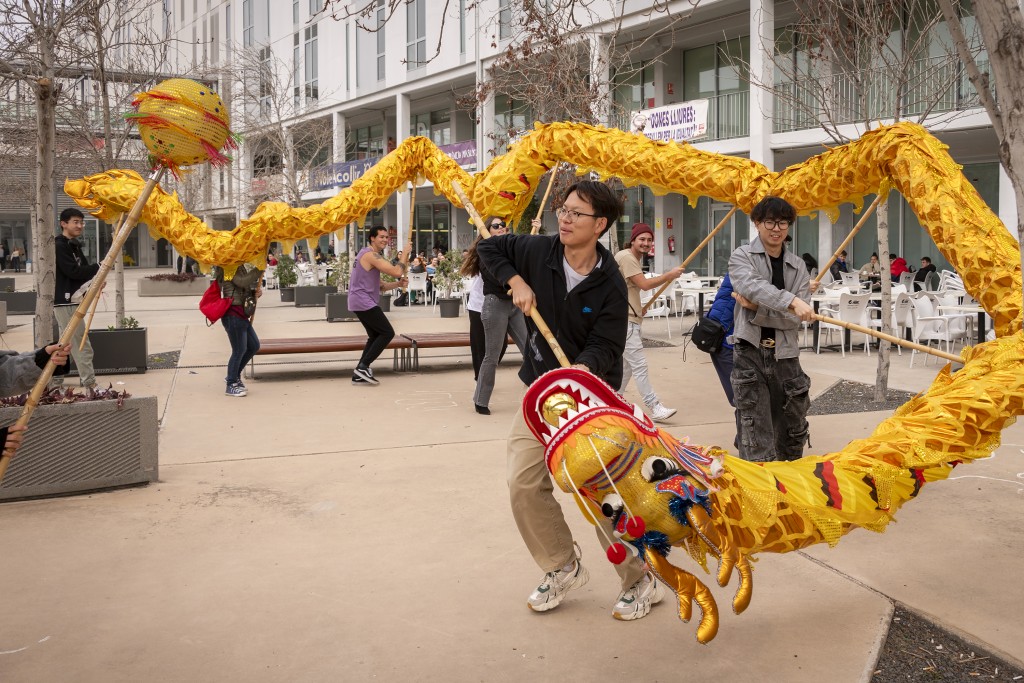
Their experience at the URV is significant for these students who, at the age of twenty, leave China for the first time to live for one or two years abroad. Their stay also makes them ambassadors of their language and culture outside their country and they take it very seriously, explains Sandra Iglesias, head of the Centre for Hispanic Studies.
To this end, every year they organise the Chinese New Year celebration at the URV and, for a few years now, also in the city of Tarragona. On 24 February, they plan to display their objects and food in the Plaça Corsini 11.30 and 13.30 h.
It has been almost twenty years since the lecturers from the Department of Romance Studies Esther Forgas, Sara Pujol and Sara Paco made an institutional trip to sign the first educational agreements with universities from China. The Centre for Hispanic Studies now has agreements with 17.
Most Spanish universities have now set up programmes addressed to Chinese-speaking students. This encourages the Centre for Hispanic Studies: “We have always supported the quality of teaching and offered a programme that actually responds to the needs of students”, explains Iglesias. These needs have changed over the years, which is why those responsible for the educational programme constantly work to update it and make it more attractive and useful.
More news about: Centre for Hispanic Studies
